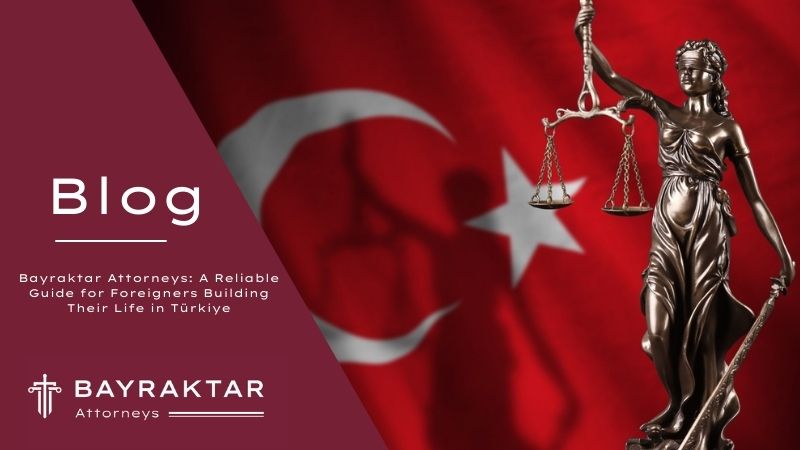
Objection to Payment Order (2024 Debt Execution Procedure)
Enforcement procedures are the steps necessary to compel a debtor to pay their obligations via the state’s channels. The creditor, who cannot collect his receivables, decides to foreclose on the debtor in order to collect his receivables. Sometimes, a claim arises from a court decision, and it may be pursued with a verdict, a lien particular to bills of exchange if it is based on checks and promissory notes, or without a judgment if it is based on any receivable.
You may register objections to the file that has been filed against you in the execution procedure. Hence, you may avoid the finalization of the case initiated against you and the seizure of your real estate, personal property, wages, or bank accounts. To oppose to enforcement procedures, however, you must satisfy the standards outlined.
Individuals who may submit a petition of objection to a payment order must be the recipient of a payment order from the appropriate office’s file. Nonetheless, this individual must also possess a valid license.
If the person to whom the payment order has been served has restricted incapacity, if the payment order for the minor’s debt has been issued to the minor, the legal representative may make a complaint against the infringement of the law’s requirements by issuing the payment order in this manner. If the payment order has been served on the child’s legal guardian, the minor is ineligible to object to the payment order. Nonetheless, if the minor’s legal guardian consents, this objection is legitimate. Restricted individuals are unable to oppose the enforcement procedures brought against them. Their guardians might oppose the enforcement action on their behalf. Orders for payment addressed to legal entities must also be contested by their authorized representative.
Where and How to Contest the Execution Process in Turkey?
The objection to the payment order is filed with the office of enforcement where the file is stored. In circumstances when the appropriate department takes a very long time to respond, this may be accomplished by paying the expenses via combat.
In the case opened by the Directorate on the debtor, it is unclear if the individual is genuinely a debtor. If the payment order is not contested within the allotted period, the records will indicate that the individual is indebted. To timely object, the payment order must be sent to the objector. Following receiving notice of the payment order, he must register his objection to the relevant file in the apartment within the specified timeframes. Moreover, he must explain why he objects to the applicable payment order.
Generally, an objection to the enforcement procedures may be lodged against the debt, the authorized enforcement agency, or the fact that the signature does not belong to him. Moreover, a partial objection may be submitted in conjunction with an objection to the enforcement procedure. In other words, a portion of the debt amount may be contested, but not the whole amount. Procedure-wise, a petition may be submitted in writing or verbally and attached to the minute. If the appeal petition is forwarded to the management and a decision is made, it becomes legitimate. The appropriate manager is also responsible for determining whether the objection to the enforcement procedure was filed within the allotted time frame.
Period of Objections to Payment Order
A challenge to the enforcement action must be filed within seven days of receiving notice of the payment order. When the payment order is improperly served, the appropriate court must be contacted and the date of notice of the payment order must be changed to reflect the date on which the wrong notification was discovered.
The objection period in the payment order is legitimate if it is made within the appropriate time frame if it is indicated in the notification period or in the payment order for more than seven days. If the objection period is not indicated in the payment order, it is considered that the payment has been made within the term, regardless of the legal period.
Bills of exchange-specific enforcement procedures launched by foreclosure must be contested within five days of notice of the payment order.
If no objection is received within the objection period, the filing becomes final and the debt is presumed to be accepted. Nevertheless, if the individual has not opposed to the payment order owing to an unavoidable external impediment and a delayed objection has emerged, an objection might be submitted later. In addition, the person who will object to the payment order is the addressee of the debt, who has been informed of the payment order. With the subsequent notice of the payment order, the objection submitted after the payment order is issued on behalf of the debtor, but before the payment order is delivered to the debtor, becomes legitimate.
Thus, an objection to a payment order should not be considered as a simple objection document. Later, the other party may file a lawsuit for the annulment of the objection and request the cancellation of the objection in question, in addition to requesting payment from you along with interest accruing from the date the relevant enforcement file was opened and 20% of the debt denial of executive compensation. Thus, it is one of the operations that should be conducted with the assistance of a skilled, knowledgeable, and experienced enforcement attorney or law company.
The topics discussed here are typically connected to the practice of execution without trial. When enforcement is commenced via other processes, the appeals process and timeframes are modified. It would be wise to seek consultancy in this respect.
If you have received a payment order and believe that it has been issued in error, you may object to the enforcement procedure. However, there are certain standards that must be satisfied in order to do so. Failure to object within the specified time frame may result in the filing becoming final, and the debt being presumed accepted. If you wish to contest the enforcement procedure, it is recommended that you seek the assistance of a skilled and experienced enforcement attorney or law company. Remember, an objection to a payment order is not a simple document and may result in a lawsuit for the annulment of the objection and further payment demands. If you have any questions or concerns, it is wise to seek consultation in this matter.







